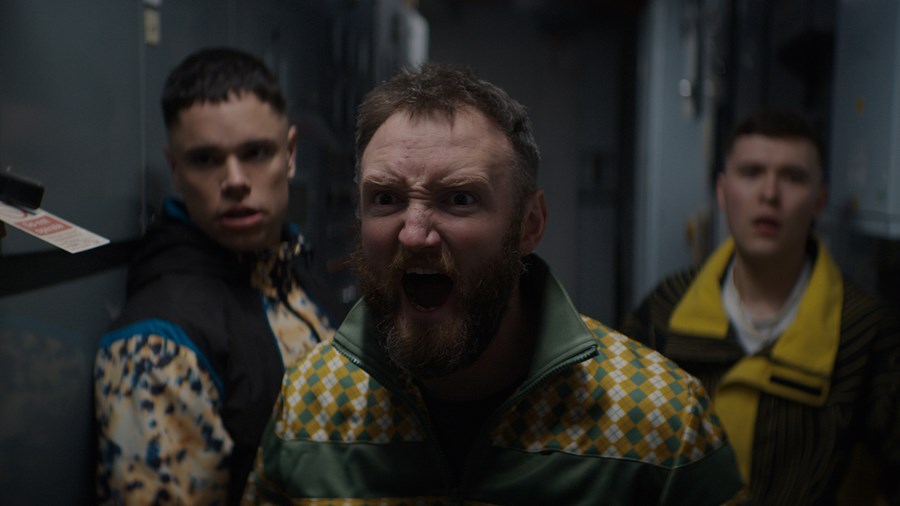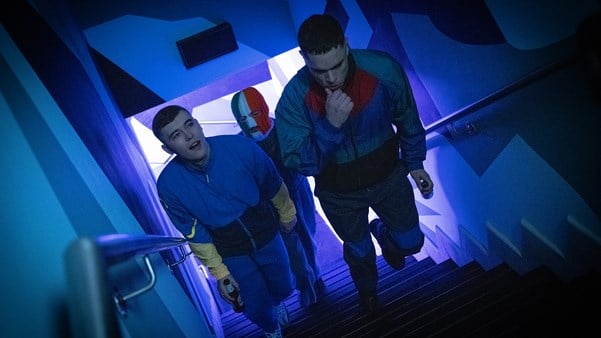The writer-director of the Sundance-winning, Irish-language rap dramedy reveals how he helped guide the titular band to portray themselves on camera.

Kneecap is a film that, on paper, shouldn’t exist. The story of a young band from Ireland, without a record deal or an album to their name, doesn’t scream music-biopic material. But, creatively, sometimes a thing can be so counterintuitive, it somehow becomes its opposite. What if, rather than the archetypal music biopic – a retrospective of a musical legacy done with the benefit of hindsight – we were to make one almost in real time? What if we got the band to play themselves? It’s so weird it might just work. And if it doesn’t, it’ll still be weird, and that’s something. Imagine, one day you might even be asked to write an article about how you did it…

My five-year-old asked me the other day ‘what is the sky?’ I found myself floundering around all sorts of utterly inadequate explanatory culs-de-sac before fleeing. I feel similarly about the question ‘how did you make this film?’ So, like a seasoned politician, I’ll pivot to a question no one has asked me: how do you direct people to play themselves? What a good question that is, if I do say so myself. It’s generally agreed the primary role of the director is to direct the actor in playing their character. But when the character is the actor, and so the actor is the character, you find yourself in the existentially thorny territory of telling a person how to better inhabit their own skin.

Kneecap (2024)
This concept of being a better version of yourself has a TikTok self-help-guru ubiquity about it. However, standing in a rehearsal studio for the first time, I can tell you it is quite the headfuck. No less so for the band – they had been themselves since birth, but actors for all of five minutes. And given they were trying to act themselves, were they really acting at all? Whatever it was, to begin with it wasn’t very good. The music stage, their natural habitat, demands a very different type of performance than one where a camera is shoved a few inches from your face. Screen acting requires energy to be more internalised than projected. It is an art form primarily about reacting and listening, something that doesn’t always come naturally to musicians, given half of them are deaf.

Kneecap (2024)
Six months of work began, of figuring out what it meant to act oneself, for them to read their own names on a script and the words beneath it, words that they may say, words that they had said – and yet not their words, but mine. What this process taught us all was this: to act oneself is not to project back that person who steps onto music stages to cheers and applause. It is to be the person you are behind closed doors, all alone. The flawed person full of fears and insecurities. It was the willingness to remove that person from the private realm and put them up on a huge fucking screen for the judgement of strangers. Acting oneself on screen is, in other words, an act of vulnerability.
So, even if you don’t like hip-hop or black comedies; hell, even if you don’t like the Irish, then I hope you will go see Kneecap to watch three lads who have put themselves out there, in the most terrifying of ways, to offer audiences a wholly unique type of on-screen authenticity. You may never have heard of Kneecap until now – prepare yourself to get to know them in a very special way.
This article originally appeared in the Summer Journal. You can pick up a free copy at your local Curzon cinema while stocks last.
WATCH KNEECAP IN CINEMAS




